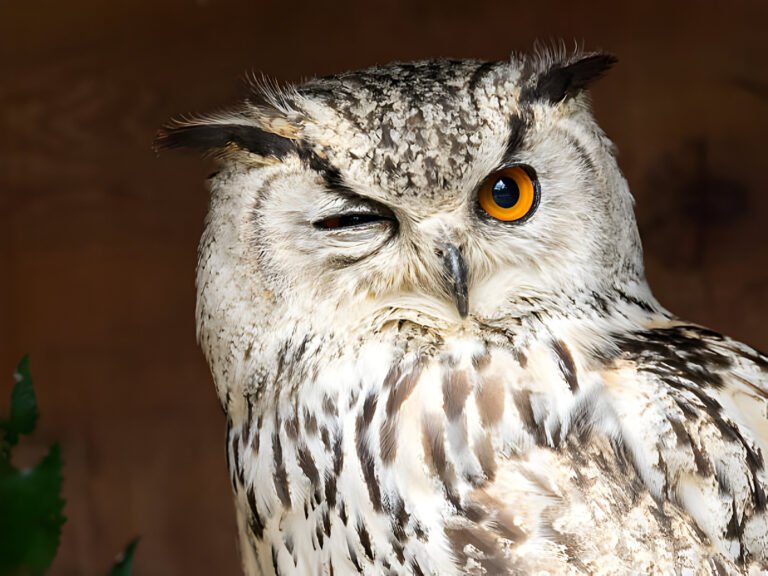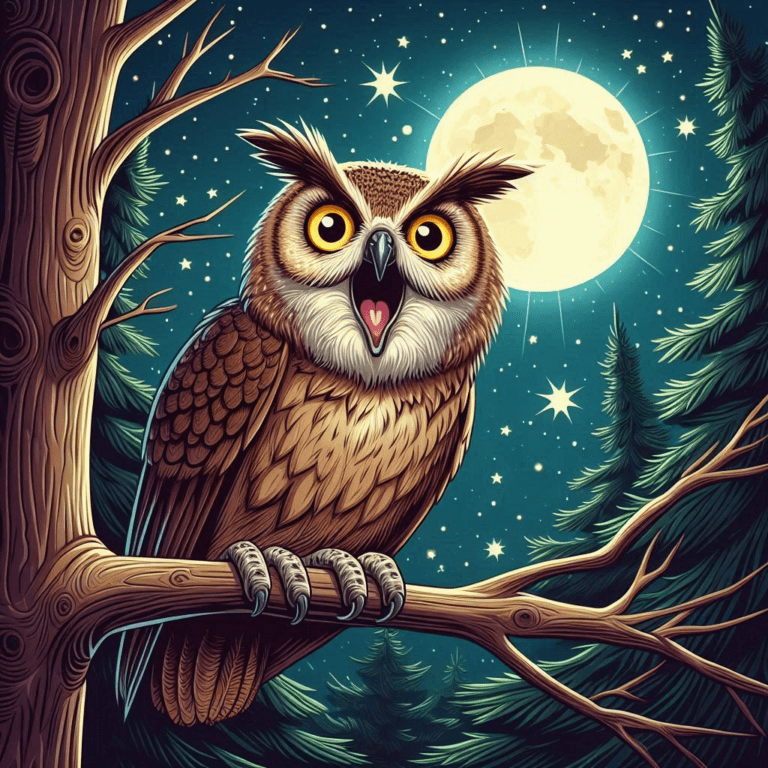If you live in the countryside or near a park, you may have heard an owl hoot at night. This sound often sparks curiosity and has a deep significance in many cultures. But what does it signify when you hear an owl hoot after dark? In this article, we’ll explore the reasons owls hoot, the symbolism behind their calls, and the cultural beliefs surrounding them.
Understanding the Owl
An owl belongs to the order Strigiformes, consisting of over 200 species of mainly solitary and nocturnal birds of prey. They are known for their distinct features, such as their upright posture, binocular vision, excellent hearing, and sharp talons. These adaptations allow owls to hunt small mammals, insects, and other birds, and some species even hunt fish.
Owls are widespread, found in almost every part of the world except the polar ice caps and some remote islands. They are divided into two main families: the Strigidae (typical owls) and Tytonidae (barn owls). A group of owls is called a parliament due to their wise demeanor, a symbol of knowledge and sagacity in some cultures.
Reasons for Hooting
Owls hoot in the middle of the night when most other animals are silent, making their calls stand out. The two main reasons owls hoot are:
- Territorial Protection: Owls hoot to defend their territory from other owls or predators. If an intruder approaches, they may emit louder, more aggressive hoots or screeches to ward off threats.
- Attracting Mates: Owls also hoot to attract mates and establish their presence. This is a crucial aspect of their behavior, particularly during mating seasons.
Is Hearing an Owl Hoot at Night a Bad Omen?
Owls have long been viewed as mystical creatures of the night. Many cultures attribute supernatural meaning to the sound of their hoot, often associating it with misfortune. However, others view it as a sign of wisdom or protection.
Owl Hooting Superstitions
In various parts of the world, especially in the United States, owl hoots are sometimes considered bad omens, symbolizing death or sadness. In some Native American religions, owls are not merely omens of death but psychopomps—creatures that escort the souls of the dead to the afterlife. While such beliefs are not universally accepted, they remain prevalent in numerous cultures.
Cultural Beliefs About Owls
Throughout history, owls have been interpreted differently across cultures, and the meanings associated with their hoots are diverse:

- African Beliefs: In certain African communities, an owl hooting at night can signify the death of a newborn or predict a difficult life for the child. If an owl hoots during childbirth, some believe the newborn will become a witch.
- Greek Beliefs: In ancient Greece, owls were symbols of good luck, linked to Athena, the goddess of wisdom. Owls were seen as protectors and often associated with success.
- Roman Beliefs: In contrast, the Romans considered owls as harbingers of death and sadness. They believed owl hoots signaled the deaths of prominent figures, such as Julius Caesar and Augustus.
- Native American Beliefs: Native American tribes hold varying beliefs about owls. The Cherokee link owls to death and sorcery, while others view them as spiritual manifestations.
- Chinese Beliefs: In ancient China, hearing an owl’s hoot was considered a bad omen, often prompting people to begin digging graves in preparation for death.
- Indian Beliefs: In Indian culture, the number of times an owl hoots carries different meanings. One hoot signifies death, two indicate success, three predict a marriage, and five suggest a journey.
Types of Owl Hooting at Night
Owls are well-equipped for nocturnal life, thanks to their highly sensitive vision and excellent hearing. Their hoots vary depending on the species and the situation. Below are a few commonly heard owl species:
- Barred Owl (North America): Known for its distinctive call, often phonetically described as “Who cooks for you?”
- Great Horned Owl (Americas): This owl’s piercing yellow eyes and deep hoots are familiar across North and South America.
- Barn Owl (Global): Widely distributed, the barn owl’s eerie, raspy screech can be heard across various continents.
- Eurasian Eagle Owl (Europe, Asia, Africa): With a wingspan of up to 6.5 feet, this owl produces deep, resonant calls.
- Scops Owl (Europe, Asia, Africa): This smaller owl species emits high-pitched hoots that vary depending on the specific type.
Conclusion
The meaning of an owl’s hoot varies greatly, depending on cultural context and personal beliefs. For some, the hoot of an owl signals danger or death, while for others, it represents wisdom, protection, and good fortune. Understanding these varied interpretations allows us to appreciate the symbolic richness of this mysterious bird. Whether viewed as an ominous call or a sign of wisdom, the owl’s hoot at night continues to fascinate and inspire.
FAQs:
- What does it mean when you hear an owl hooting at night? Hearing an owl hoot at night can have multiple meanings. In some cultures, it’s seen as an omen of bad luck or death, while others view it as a sign of wisdom, protection, or good fortune.
- Why do owls hoot at night? Owls hoot at night primarily to protect their territory and attract mates. As nocturnal creatures, they are more active at night, making their calls more noticeable.
- Are owls hooting at night a bad omen? In many cultures, owls hooting at night are considered bad omens, often related to death or illness. However, in other traditions, such as in ancient Greece, owl hoots are seen as signs of good luck and wisdom.
For more insights into owl symbolism and nocturnal behaviors, stay connected with Red Hat Life.



